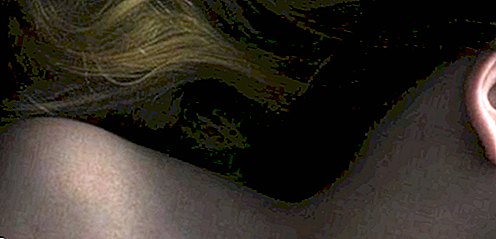What helps with hearing loss?

Deep Purple and the Rolling Stones are to blame. They made music near the acoustic pain threshold. Like no generation before, the baby boomers sounded deafening volumes. The consequences they feel today: Deafness affects younger, many 45-year-olds hear badly. Our ears are extremely sensitive. Every sound wave that receives the auricle causes the eardrum to vibrate. Even at night, when we sleep.
Through the auditory ossicles, the vibrations reach the inner ear to the actual hearing organ, the only pea-sized cochlea. Their 20,000 hair cells convert the sound into nerve impulses and pass them on to the brain. If certain areas of the hair are irritated too much by high volumes, the associated auditory cells die off. We can never hear the corresponding notes again.
"How much noise the ears endure, is individually different," says Professor Karin Schorn, former head of the Department of Audiology at the Munich Klinikum Grosshadern and specialist in hearing disorders from Starnberg. "Anyone who exposes themselves for years to a noise level of 85 decibels or more, which is equivalent to a rushing truck, damages his hearing in any case."
A damaged hearing is the cause of deafness
Rock concerts, where peak values around 130 decibels boom out of the loudspeakers like with an approaching jet, accelerate the loss of hearing. Sound energy at this intensity will keep ears out for a maximum of two hours a week. Anyone who used to play the stereo every day on "Smoke on the water" and "Satisfaction" now often has problems following discussions.
For a hearing that has been damaged by noise no longer perceives high notes with vibrations of 4,000 hertz. Consonants like K, L, and S that are in this range are no longer heard. "This especially affects conversations with several people," says Karin Schorn. "When music is still playing in the background, the fan is whirring or children are playing, the phrases often get lost in the sound mash."
Constant radio irrigation (50 decibels), the traffic on the doorstep (70 decibels) and the MP3 player (110 decibels) overtax the ears in addition. Over the years, medium and lower frequencies are perceived increasingly badly.
An individually adapted hearing aid improves
From a noise damage, a definite hearing loss develops. Doctors speak of sensorineural or inner ear hearing loss. It can only be improved with a customized hearing aid. And they should be prescribed as early as possible. For anyone who goes through life with a bad ear for too long forgets how it sounds, when crickets chirp, leaves rustle in the wind and the sea rushes. "Over the years, the nerve tracts in the brain adapt to incomplete hearing and form back - like a muscle that is no longer being trained," warns Professor Schorn.
Anyone who is unsure whether he can still rely on his hearing, it should therefore be checked. Otolaryngologists, ear specialists (otologists), but also the hearing care professional around the corner create an audiogram. In this hearing test, each ear individually interrogates tones and noises in different pitches and volumes as well as words. In addition, the hearing specialist tests how well the eardrum still vibrates.
If the type and degree of deafness are determined, the hearing care professional will help to find a suitable hearing system. Modern devices work like a minicomputer with microchips and digital data transmission. In-ear devices that sit in the ear canal, although the closest to the natural sound recording, but are too weak in severe hearing loss and can feel uncomfortable. That's why beloved ones are now behind-the-ear devices that are barely longer than two centimeters. The auditory canal remains free, in the ear leads only a transparent micro tube. No one has to be afraid that the handicap will be immediately visible. Who knows what Mick Jagger might be hiding behind the ears.
This way you can protect yourself from hearing loss
- Give your ears a rest for at least ten hours after a loud concert.
- When you wear headphones, you only turn the music so loud that a passing car and a human speaking two meters away can still be heard.
- Hear no more than two hours a day listening to music through headphones.
- Wear earplugs when there is a lot of noise, for example in the gym or in the cinema.
- First evidence of a hearing loss is a test at www.earaction.de.
- Individual questions about hearing problems and hearing aids are answered by hearing care professionals or ENT specialists). The German Green Cross also provides information.










